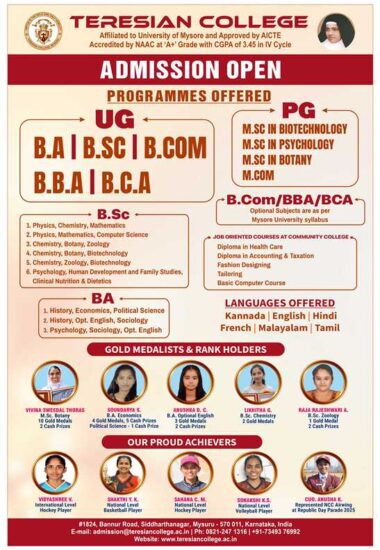
Department of Mathematics
Department of Mathematics
Introduction:
The Department was established in 1963. Prof. Valsa Mathew served and developed the Department and retired in 1998. Prof. P. K. Mary served in the Department till 1985 and was transferred. Prof. Saly Abraham joined the department in 1986 and retired in 2023. After the superannuation of Prof. Valsa Mathew in 1998, Dr Jeyanthi.C joined the Department in 2000 and continuing her service till date, is presently the head of the department. Sanmathi Urs C. joined the department in 2018 and continuing till date. The Department has well qualified and dedicated faculty.
Practical’s in Mathematics was introduced in 2015-16 batch onwards with Free and Open Source Software (FOSS) tools for computer programs. CBCS was implemented in 2018-19. NEP was implemented in 2020-21. SEP was implemented in 2024-2025.
Infrastructure
- ICT enabled Spacious classrooms are available.
- Well-equipped lab with enough systems for individual student.
- Internet connectivity is available.
courses offered:
B.Sc.
Physics, Chemistry and Mathematics
Physics, Mathematics & computer Science
Program outcomes, program specific outcomes, course outcomes
Program specific outcomes
- Formulate and analyse mathematical problems, precisely define the key terms and draw clear and reasonable conclusions.
- Use mathematical techniques to solve well defined problems and present their mathematical work, both in oral and written format to students.
- Read, understand and construct correct mathematical proofs.
- Explain the importance of mathematics and its techniques to solve real life problems and provide the limitations of such techniques and the validity of the results.
- Continue to acquire mathematical knowledge and skills.
- Motivate students for higher studies and research.
- Prepare students to work independently and collaborate effectively in team work and team building.
- Understand mathematical ideas from basic axioms.
- Identify the applications of mathematics in other disciplines and society.
- To introduce concepts of mathematics with emphasis on analytical ability & computational skill needed in competitive examinations.
program outcome
Apply the knowledge of science fundamentals to solve problems in chosen field.
Identify and review literature, thereby analysing problems to arrive at substantiated solutions using the basic principles of science.
Apply reasoning to assess the societal issues like health, safety, legal and cultural to dominate the need for sustainable development.
Apply ethical principles and commit to the professional ethics and norms.
To understand the impact of responsibility of pursuing the environment and demonstrate the need for sustainable development.
Function effectively as an individual and as member or leader in diverse teams in multi – disciplinary settings.
Demonstrate the knowledge of the understanding of the fundamental principles and apply the same in one ‘s own practice and to manage environment.
Recognise the need for and have the preparation and ability to engage in independent and lifelong learning in the broadest context of latest technology.
COURSE OUTCOME:
Differential calculus:
Upon successful completion of the course, students will be able to
- To find the nth derivatives of functions
- Apply the Leibnitz’s theorem for finding nth derivative of product of two functions.
- Apply the chain rule for functions of several variables.
- Apply Taylor’s and Maclaurin’s series for finding series expansions of functions and approximating values.
- Understand the concept of indeterminate forms, their occurrence in problems and their evaluation
- Describe the concepts and applications of derivatives and higher order derivatives
- Understand the ideas of derivatives and higher order derivatives
- Develop skill in finding the partial derivatives of functions of several variables and various rules associated.
Integral calculus:
Students will able to
- Acquire the knowledge of integration, basics of Definite Integrals, properties and Reduction formula.
- Acquire the basic ideas of line, double and triple integrals.
- Apply the techniques of double and triple integral to various problems of finding length of plane curves, surface areas and volumes of surfaces of revolution
- To evaluate multiple integrals by Changing the variables.
- To understand the basics of Improper Integrals- Gamma and beta functions and results, connection between Beta and Gamma function, Applications of evaluation of integrals, Duplication formula.
Differential equations.
- Gain Knowledge of fundamental concepts of solution of differential equations by
- Using different methods to solve first order, first degree linear differential equations.
- To determine solutions to second and higher order linear differential equations (homogeneous and non-homogeneous) with constant coefficients.
- Acquire the idea for solving the first and higher order partial differential equations.
Algebra.
1.To understand the concept of theory of equations and methods to solve equations of different degree-Cardon’s method, Descarte’s method.
2.Learn more about matrices and matrix methods to solve system of equations by verifying consistency of equations.
3.Acquire the basic knowledge of Number Theory and standard theorems.
Group theory
1.Acquire the basic knowledge and the definition and structure of Group, Subgroup and Cyclic Groups.
2.Explain the significance of the notion of a normal subgroup, and of a simple group.
3.Analyze and demonstrate examples and theorems on subgroups, normal subgroups and quotient groups.
4.Use Lagrange’s Theorem to analyze the cyclic subgroups of a group.
5.Acquire the notion of permutations and operations on them.
6.Prove Cayley’s theorem and understand its applications.
7.Develop an idea about Isomorphism, homomorphism and automorphism.
Rings and fields–
- Upon successful completion of the course, students will be able to
2.Describe a ring, subring, quotient ring, ideals, units and associates.
3.Understand Quotient Rings, Ideals and their existence with examples
4.Differentiate between Ring Ideals and Quotient Rings and also their properties
5.Understand the Integral Domains, Fields and Divisors of Zero
6.Understand Homomorphism and isomorphisim of rings.
7.Rings of polynomials and its factorization over a field.
8.Unique Factorization domain, Eienstien criterion related results
Linear algebra:
Students will able to
1.Define Vector Space, Quotient space Direct sum, linear span and linear independence, basis.
2.Understand the Theorems on linear combination, linear span, linear dependence, independence, Basis and Dimension of Homomorphism and Isomorphism of vector space and direct sums.
3.Define linear maps as matrices, rank and nullity and understand rank and nullity theorem
F4.ind the characteristic equation, eigen values and eigen vectors of a matrix of a linear transformation
5.Solve the system of simultaneous linear equations.
Riemann Integration
Upon successful completion of the course, students will be able to
1.Understand Integrability, criterion for Integrability and theorems on integrability like Fundamental theorem of calculus, Change of variables, Integration by parts, first and second Mean value theorems of Integral calculus.
- Define Riemann integrable, Upper sum, lower sum and Riemann sums
3.Prove a theorem about Riemann sums and Riemann integrals.
4.Understand the Integrability of continous and monotonic functions discontinuous functions
5.Develop a knowledge about Riemann Integration and applies into problems
Real analysis:
Students should be able to:
Understand Real Sequences-
- Define bounded, unbounded, Infimum, supremum and limit of sequences.
- Prove standard theorems on limits. Convergent, divergent and oscillatory sequences, monotonic sequence, Cauchy’s general principle of convergence,
- Understand the Infinite Series- Define Convergence, divergence and oscillation of series.
- To explain Geometric series, p series, Tests of convergence of series, Alternating series.
Complex analysis:
- Students will be able to:
- Find all integral roots and all logarithms of nonzero complex numbers
- Evaluate exponentials and integral powers of complex numbers
- Define and analyze limits and continuity for complex functions
- Determine whether a given function is differentiable, and if so find its derivative
- Understand the significance of differentiability for complex functions and be familiar with the Cauchy-Riemann equations
- Conceive the concepts of analytic functions and will be familiar with the elementary complex functions and their properties
- Constructions of Analytic Functions- Milne Thomson method and using the concept of Harmonic functions.
- Apply the analyticity and the Cauchy-Riemann equations and of results on harmonic and entire functions including the fundamental theorem of algebra
- Understand the basic methods of complex integration and its application in contour integration
- Understand the theory and techniques of complex integration
- Evaluate integrals along a path in the complex plane and understand the statement of Cauchy’s Theorem and Liouville’s theorem,
- Use Cauchy’s integral theorem and formula to compute line integrals
- Evaluate complex contour integrals directly and by the fundamental theorem and applying the Cauchy integral formula
Numerical analysis–
Students will able to
- Define Basic concepts of operators ∆, Ε, ∇
- Find the difference of polynomial
- Solve problems using Newton forward formula and Newton backward formula.
- Derive Gauss’s formula using Newton forward formula and Newton backward formula.
- Derive Simpson’s 1/3 ,3/8 and trapezoidal rule using general quadrature formula and evaluate integration using these methods
- Find the solution of the first order linear differential equations
- Find the solution of ordinary differential equation of first by Euler, Picard’s and Runge-Kutta method.
Vector calculus-
- Define vector fields and definition of directional derivative and gradient and illustrate geometric meanings.
- Use Green’s theorem to evaluate line integrals along simple closed contours on the plane.
- Compute the curl and the divergence of vector fields.
- Calculate directional derivatives and gradients.
- Apply gradient to find normal vectors to surfaces.
MATHEMATICS PRACTICAL
Students will able to Learn software like Maxima
Problem solve on Linear algebra, Analysis, Number theory, Algebra and calculus by using maxima software.
Students learn how to apply mathematical concepts to practically.
Problem solving skills of students are enhanced.
Mathematical concepts are strengthened by solving more number of problems.
Due to individual interaction with the teacher, students can clear their doubts if they have any.
HOD’s Message
The B.Sc. Triple Majors programs are three-year rigorous programs that offer curriculums equipped to instil students with the prowess and acumen in their field of interests. As an interdisciplinary program, these programs have been designed to ensure that every student acquires an in-depth understanding of their subjects and can showcase their talents, skills, and abilities in any dynamic environment with ease. In order to stand out in today’s world, these programs are structured to not merely make students well-versed in the technicalities, ideation process and execution for practical outcomes but also to gain proficiency in each subject and further, pursue a career of their choice. On acquiring knowledge of the qualitative and quantitative techniques as well as gaining an in-depth understanding of the field. Graduates of this degree will be able to demonstrate their skills in all the three subjects of the combination, they select. The curricular and extracurricular activities are designed in a way to ensure that the students receive a holistic understanding through the curriculum.
Dr. Jeyanthi C
HOD
VISION
To develop Mathematical knowledge, analytically and logically among students and promote Mathematical thought as an important area of human thought.
MISSION
- To provide an environment where students can learn and become competent users of mathematics and mathematical application.
- To make students as mathematical thinkers, enabling them to become lifelong learners,
- To continue to grow in their chosen professions, and to function as productive citizens.
Faculty Profile.
Name : Dr. Jeyanthi C.
Designation : Associate Professor
Qualification : M.Sc., M.Phil, P.hD
Year of Joining : 2000
Experience : 25 Years
Name : Mrs. Sanmathi Urs C.
Designation : Assistant Professor
Qualification : M. Sc, B.Ed
Year of Joining : 2018
Experience : 05 Years
ACHIEVEMENTS OF THE DEPARTMENT
- Ayesha Tabassum(2021-22) Scored 589/600 (10 CGPA) 3 Gold Medals
- Kavya B(2018-19) scored 981/1000(98.1%), 4 Papers 100%
- Pooja G(2018-19) secured 974/1000(97.4%), 2 paper 100%
- Pooja .M (2017-18) was the University topper in Mathematics.
- Manasa D.P(2016-17) was the University topper in Mathematics.
- Every year our students are toppers in Mathematics in the Mysore University Examinations.
- In the University Examinations, our department is getting 100% results.
- The department has organized two workshops on practical IV and VI to University teachers.
- More than 75% students go for higher studies.
- Most of the Alumni are working in reputed companies/ as Teachers in Schools and Colleges.
- Jesica A (2022-2023) scored 561/600(9.67 CGPA) and has won 5 Gold medal and 7 cash prize during 103rd University Convocation
Activities of the Department
- pi day is celebrated every year on March 14th
- National Mathematics day is celebrated every year on 22nd December
- Every year Competitions like Best out of Waste, PPT Competition, Mehandi Competition, Photography, Quiz and Mandala Art Competition are conducted.
- Extension Activity by the department of Mathematics on 20th February 2024 at Government Higher Primary School, Yandhalli.
- Extension Activity by the department of Mathematics to teach teresian puc students by our students.
- Extension Activity by the department of Mathematics, Extending basic Education to underprivileged children,
- The department Participate and contribute in National Science day celebration on 28th February every year and organised Treasure Hunt Competition during 2024-2025.
- Department of Mathematics has done Faculty Exchange program with Little Flower Degree college, Uppal, Hyderabad.
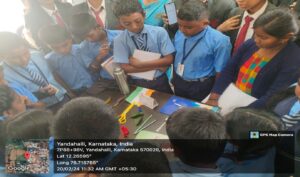
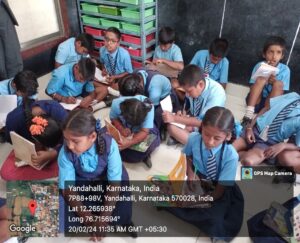
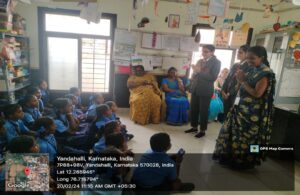
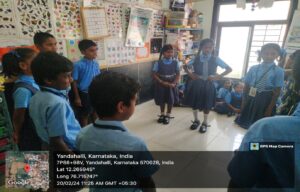
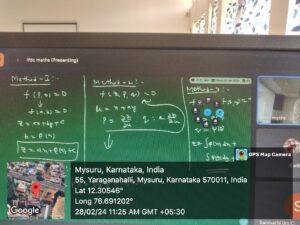
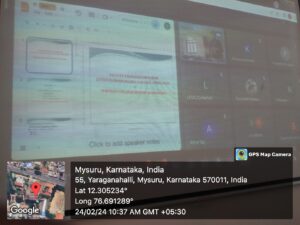
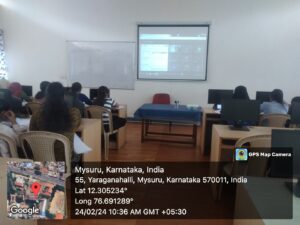
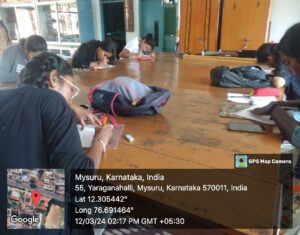
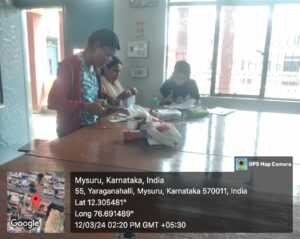
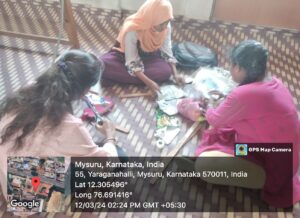
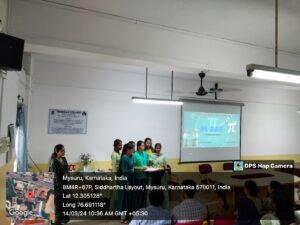
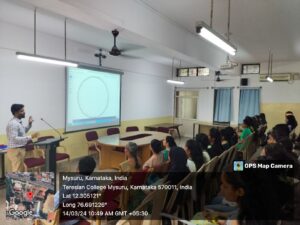
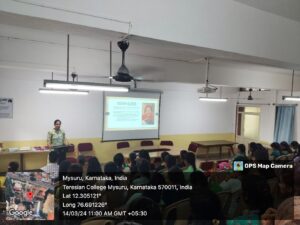
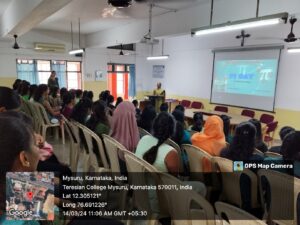
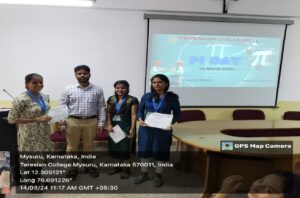
Dr. Jeyanthi C
Associate Professor & HOD
Department of Mathematics
Teresian College,
Siddarthanagar,
Mysuru – 570 011.
Mob : +91 9749376992
E-Mail : teresianmath@gmail.com

- Teresian College Bannur Road, Siddarthanagar, Mysuru 570011
- Phone 0821-2471316
- Email: administrator@teresiancollege.ac.in
